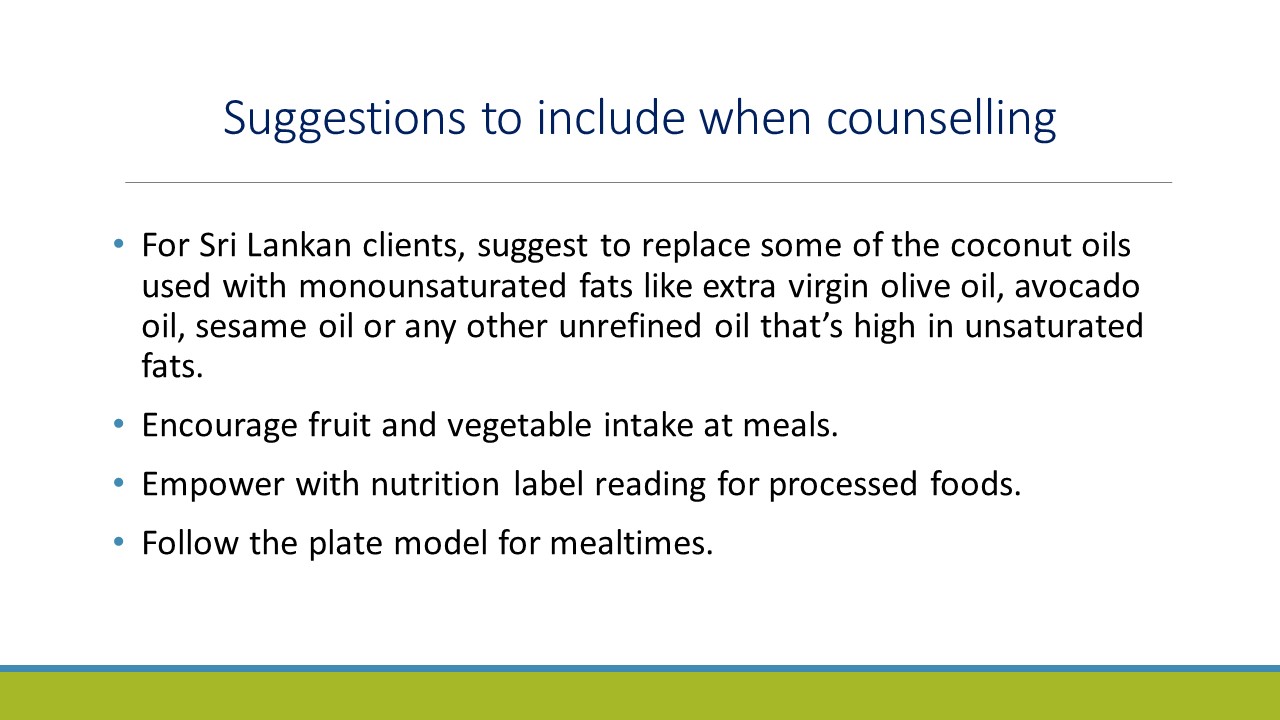Food practices of Sri Lanka and the Indian subcontinent by Nazreen Nakeeb, APD
 Anthea Talliopoulos, APD
Anthea Talliopoulos, APD
With the increasing cultural diversity of Australia, including migrants from Sri Lanka and the Indian subcontinent, having a thorough understanding of traditional cultural food practices, dietary shifts over time and the health implications of these changes are key. The ‘healthy migrant’ effect is of particular interest to researchers in amongst these cultural groups, which refers to the fact that according to the Australian Institute of Health and Welfare, on average, migrants to Australia have lower rates of long-term health conditions than those who are born in Australia. While the mechanism of this is likely multifactorial and complex, the healthy migrant effect is no longer relevant after 20 years post-migration, with migrants later presenting with similar rates of chronic health conditions such as obesity, type 2 diabetes and cardiovascular disease as the general Australian-born population.
When the dietary practices of migrants from Sri Lankan and Indian subcontinent are observed, individuals tend to consume excessive carbohydrates and saturated fats, predominantly from rice and traditional breads and coconut/ghee products. This is of particular concern given the elevated risk for diabetes and heart disease over time. In understanding the traditional food practices amongst these cultural groups, Accredited Practising Dietitian Nareen Nakeeb provides a thorough outline on common foods, portion control, food swaps, and Ramadan dietary tips in a practical and informative way. She discusses the importance of GI-pairing at meals, making low GI carbohydrate food choices, swapping to unsaturated fats, and increasing fruit and vegetable intake, with an emphasis on healthier traditional foods. Nazreen outlines that there is largely no issue with traditional foods in and of themselves consumed at meals, but rather the portion, frequency of consumption, and the processing of foods should be considered in a Western dietary context.
Overall, as clinicians, it is crucial to ensure that we have a thorough understanding and practical knowledge of the traditional foods consumed and the individual determinants of health which may be impacting the later development of chronic health conditions amongst migrants from Sri Lanka and the Indian subcontinent.
Summary:
- With the increasing cultural diversity of Australia, including migrants from Sri Lanka and the Indian subcontinent, having a thorough understanding of traditional cultural food practices, dietary shifts over time and the health implications of these changes are key.
- The healthy migrant effect displays that migrants initially tend to have lower rates of chronic health conditions upon migrating, with a protective effect no longer being observed 20 years post-migration.
- Over time, with shifts in dietary practices, migrants are at risk of obesity, type 2 diabetes and cardiovascular disease.
- Key dietary considerations include GI-pairing at meals, making low GI carbohydrate food choices, swapping to unsaturated fats, and increasing fruit and vegetable intake, with an emphasis on traditional foods to reduce the risk of these chronic health conditions.
Nazreen Nakeeb is a Sri Lankan-Australian APD. Nazreen has worked in Qatar and Sri Lanka and currently consults at multiple GP clinics in Sydney as well as providing Telehealth to women from around the world through her optimal health and PCOS program. Nazreen is passionate that understanding cultural beliefs and food practices is essential for building rapport and providing practical culturally appropriate dietary advice.
To register for the presentation and associated documents including the assessment quiz click here

